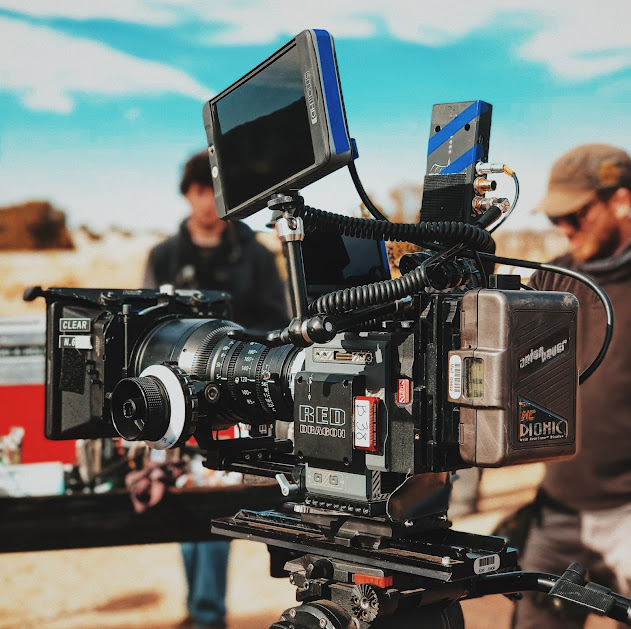A film can be developed or produced in a variety of ways. A studio can engage a writer to produce a script based on a concept or the film rights to an existing literary property. The development team at the studio collaborates with the writer to create the plot. It should be noted that the majority of scripts generated by studios are never produced.
Other movies begin with a script developed outside the studio. A script is written here by a writer who
is either self-employed or contracted by an independent producer. It may then be bundled with other
components, such as a cast or crew, and offered to the studio for finance and distribution.
Other films are conceived and produced independently of the studio that will eventually distribute them.
To fund production, these independently produced productions are frequently reliant on financiers or
pre-sale distribution arrangements (selling off various overseas distribution rights). The producer
then enters into an acquisition deal with a distributor for the film's distribution. This is known as a
NEGATIVE PICK-UP Bargain or a pre-sale deal.
Acquisitions are a necessary component of the film industry. It is the process through which
executives from the film industry and independent distributors buy or acquire material such as movies,
television shows, TV series, webisodes, and documentaries.
The buyer negotiates the acquisition of motion picture distribution rights in a certain region (also
known as licensing) or the purchase of a motion picture (or several motion pictures) so that ownership
of the copyright and all rights are passed to the buyer. Before purchasing a film, the buyer will want
guarantees that it is free and clear of liens and encumbrances and has a clear chain of title.
The term "chain of title" refers to the set of legal documents or agreements that establish proprietary
(ownership) rights in a film, including documented evidence of assignments to the production company,
licensor, or rights holder. A "clean" chain of title indicates that there are no gaps in the line of
ownership or difficulties that cast doubt on ownership.
When a film is picked up for distribution, the buyer begins talks with the production company (or
licensee or rights holder) on a purchase and distribution agreement, with the assistance of a producer's
rep or entertainment attorney (it can be dangerous for filmmakers to negotiate independent film
distribution deals themselves). Deals for film purchases can be arranged before, during, or after
production. During the purchase process, the buyer negotiates for the film's distribution rights, which
may include acquiring rights to any distinctive fictitious characters.
During the film purchase process, an experienced buyer will seek guarantees that it will obtain the
required rights to distribute the picture without interference from a third party. As a result, the buyer will
perform due diligence in order to determine the status of the producing company's rights and liabilities.
Often, the distribution company's satisfaction with the results of the due diligence investigation (that is,
the film has a clean chain of title and all necessary rights have been cleared) is treated as a condition
precedent for the distribution agreement to become effective in the acquisition and distribution
agreement with the production company.
How to Get Acquisition for Your Film
Do not show too much
Even if executives want a preliminary edit, do not show your film until it is done. They may claim to be
pros who wish to visualize the picture, but do not believe them. Your incomplete film would be regarded
and judged as unprofessional. This is a bad idea since first impressions last.
The only reason to exhibit your film before it is finished is if you are starving for funding to complete it.
Under these conditions, the terms you may receive are generally less favorable than those offered
upon completion. If you must display a work in progress, do so on a flatbed editing table rather than in
a theater.
Do a screening
Instead of giving executives a videocassette, invite them to a viewing. This is due to the fact that busy
executives have little time to view them.
You want to bring the executive into a dark room, away from distractions, to watch your video in front
of a live audience, ideally one that will respond favorably. Rent a screening room, invite as many
acquisition executives as you can, and fill the rest of the theater with your friends and relatives.
Ignite the fires of competition
All distributors should be shown the film at the same time. Some executives may want to gain an
early peek because that is their job, but they will remain interested until the project is finished.
They may be irritated to see their opponents when they come to the screening, but this will get their
competitive juices going. They will realize that if they want to obtain the film, they must make a good
offer soon.
Get an advisor
Engage the services of an experienced producer's representative or entertainment attorney to negotiate
your contract. Filmmakers understand film, and distributors understand distribution. Don't fool yourself
into thinking you can win in their arena. There are several stumbling blocks to avoid. Hire a
knowledgeable guide to defend your interests. Any competent negotiator may increase a distributor's
offer sufficiently to offset the expense of his services.
Carry out background checks
Always investigate each acquisitor’s track record and experience. The astute filmmaker will thoroughly
research possible acquisitors by contacting filmmakers who have previously worked with them. This
would prevent stories that touch further down the line.
In conclusion, be sure you get the best deal for your film. Before choosing the executive to buy your
film, you should examine other factors such as funds being offered, acquisitor’s track record and health,
the acquisitor’s influence in the film industry, plans of involvement, other films being handled by the
acquisitor, market strategy, and even chemistry between you and the executive.




Comments
Post a Comment